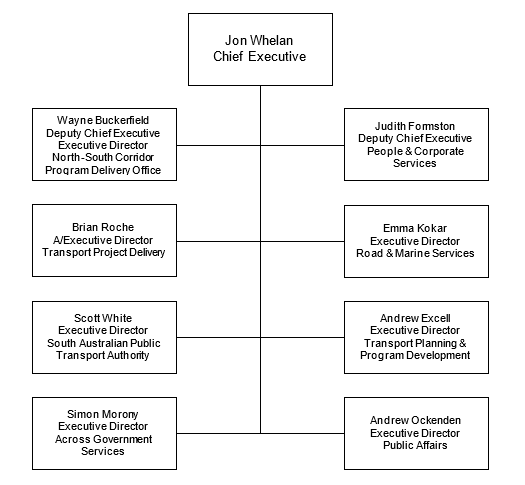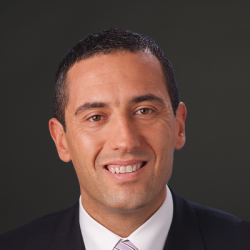| Act or Regulation | Requirement |
|---|
| Passenger Transport Act 1994 | 24A—Annual report (1) The administrative unit of the Public Service that is, under the Minister, responsible for the administration of this Act must, on or before 30 September in each year, prepare a report on the operation and administration of this Act for the financial year ending on the preceding
30 June. (2) The report must include specific reports on the following matters for the relevant financial year: (a) levels of public utilisation of passenger transport services within the State; (b) issues affecting the accessibility and utilisation of public transport within the State; (c) the number and nature of complaints, compliments and submissions made to the Minister by members of the public under any centralised system established for the purpose under this Act; (d) the general availability of taxis on taxi-stands in Metropolitan Adelaide, and response times to bookings within the taxi industry, and must also include any other information required by this Act. (3) A report under this section may be incorporated into the annual report of the relevant administrative unit. (4) The Minister must cause a copy of the report to be laid before both Houses of Parliament within 12 sitting days after the report is prepared. |
The Department administers the Passenger Transport Act 1994 (the PT Act) and Passenger Transport Regulations 2009, by planning, regulating, and funding public transport services (bus, train and tram, taxi and hire car) across South Australia. Pursuant to section 24A of the PT Act, the following report is provided.
The Department has performance-based franchise contracts with bus, tram and train operators that keeps the operator focused firmly on the efficiency and quality of service delivery to customers. The government retains ownership of rail assets (including trains, trams, tracks, stations, and all infrastructure); sets requirements for levels of services; continues to set the fare price for travel on bus, tram and trains and retains the revenue.
Public transport bus and tram services across metropolitan Adelaide are provided by four private transport providers: Torrens Transit Pty Ltd which operates three contract areas (East West, Outer North and Outer North East); Busways South Australia Pty Ltd which operates the Outer South contract area; and Australian Transit enterprises Pty Ltd trading as Southlink which operates the Hills contract area. Torrens Connect (a joint venture between Torrens Transit Pty Ltd, UGL Rail Services Pty Ltd and John Holland Pty Ltd) provides both bus and light rail services in the North-South contract area.
The bus and tram contracts commenced on 5 July 2020. Rail Infrastructure Maintenance for tram functions (i.e. within track, civil, signalling and overhead) transitioned to Torrens Connect on 31 January 2021, in line with the commencement of the new train contract.
The Outsourced Rail Operations Agreement (OROA) with Keolis Downer Adelaide commenced on 31 January 2021, for the operation and maintenance of the Adelaide Metropolitan Passenger Rail Network (AMPRN), which consists of six commuter routes on four main lines with the provision of asset management and rolling stock maintenance services.
Public transport services in regional South Australia are also administered by the Department. These include regular route services (country bus services), provincial city services, integrated transport plans, special medical-related services and Dial-a-Ride services.
The Department supports community passenger networks across regional South Australia and within metropolitan Adelaide. The Community Passenger Networks Program is established to facilitate access to transport for people who are transport disadvantaged. The program is jointly funded by the Commonwealth Home Support Program and the South Australian Department of Human Services.
The Department is committed to continually improving public transport services and infrastructure and making public transport more accessible and easier to use for all users. The metropolitan bus fleet is now 100% accessible.
The Department's Station Upgrade Program continues to upgrade selected stations along metropolitan passenger rail lines to provide safer and more efficient services for train customers, with all improvements focusing on accessibility in line with the Disability Discrimination Act 2002, for public transport services. Improved facilities for commuters include new shelters, improved lighting, platform furniture, additional cover, improved access, pedestrian crossings, bike enclosures, additional CCTV cameras, new access paths and ramps along with new car parking facilities.
Departmental officers at the Adelaide Railway Station monitor accessibility gates and provide 'sighted guide' assistance to passengers to board trains if needed. Information regarding accessible journeys is published on the Adelaide Metro website.
Adelaide Metro patronage 2021–2022
The total patronage on the public transport system in 2021-2022 was 47,529,317, an 8.7% reduction compared with total patronage in the previous year (2020-2021).
Note: 2021-2022 patronage continued to be significantly impacted by the impacts of COVID-19.
Total patronage by mode
| Bus | Tram | Train | Total patronage* |
|---|
| 34,171,468 | 5,526,536 | 7,831,313 | 47,529,317 |
Total patronage by passenger type
| Regular | Concession | Student | Seniors | Free Travel | Special Passes | Total patronage* |
|---|
| 12,011,374 | 13,740,302 | 9,186,297 | 5,088,302 | 7,208,393 | 294,649 | 47,529,317 |
Total patronage by ticket type
| MetroCARD | Single trip | Daytrip | Free travel | Total patronage* |
|---|
| 39,625,355 | 563,008 | 132,561 | 7,208,393 | 47,529,317 |
*The figures listed above include free travel data.
Special event services
On 23 October 2014, an amendment to the Passenger Transport Act 1994, was enacted with respect to the management and funding of public transport for special events. The aim of the legislation is to facilitate the successful planning of special events in metropolitan Adelaide by requiring mandatory notification of major events and also to provide a mechanism for the costs of additional public transport services required for the event to be recovered where the event is considered a "commercial event".
The key elements of the legislation include the requirement for venue managers to notify the Department six months in advance (or as soon as the event is known) of any event expected to attract more than 5,000 patrons and, where additional public transport services are required, that commercial events contribute to the cost of these extra services.
Events are classified as one of two different categories of event for the purposes of the legislation. The two categories are:
- Commercial Events: organised for profit where there is a fee for participants either in the form of a ticket or an indirect fee i.e. membership of a club or association; or
- Community Events: organised as not for profit, the event is open to the community and attendance is free or a voluntary donation from attendees may be sought.
Based on the information provided in the notification form, the Department will make a determination regarding the need for additional or special public transport services to cater for the event and, where extra services are required, events categorised as "commercial" will be required to fund the services.
During 2021-2022, the COVID-19 pandemic continued to have a significant impact on special events with many events either cancelled or considerably scaled back with respect to crowd numbers permitted. Major events that were held during 2021-2022, albeit with reduced crowd numbers, included cricket, AFL football and the Christmas Pageant. All of these events were held at Adelaide Oval with additional, special AOX services operating across the bus, train and tram network, to and from the event. While crowds were significantly reduced, the Department maintained a full suite of services to assist patrons to maintain social distance while on special public transport services. Despite the reduced crowds during 2021-2022, an average of 40% of the crowds attending AFL matches at Adelaide Oval used public transport to travel to and from the events. During 2021-2022, all cruise ships were cancelled and therefore the Department was not required to provide additional public transport and customer support services for these visits as has been required in previous years.
Regional services
The Department regulates and contributes to funding transport services in some regional areas.
Regular route services operate across regional South Australia and link major centres to Adelaide. Services operate in the Barossa Valley, Murray Mallee, Mid North, Upper North, Far North, Riverland, Eyre, South East and Fleurieu regions.
Integrated transport services operate in the Coorong District Council, Karoonda East District Council, Murray District Council, Southern Mallee District Council, Mid Murray District Council, Southern Yorke Peninsula, Tatiara District Council, Eastern Riverland, Upper North, Mid North, Adelaide Hills, Victor Harbor and on Kangaroo Island.
Dial-a-Ride door to door services are provided in Victor Harbor, Port Lincoln, Murray Bridge, the Copper Coast and Barossa Valley. These supplement regular timetabled services and extend the range of public transport options for these communities.
On 28 June 2022, the Department commenced Phase One of a competitive market process for the regional bus service contracts. As part of this competitive process, the Department has consolidated 28 existing regional contracts to 19 contracts with contracts 1-14 (representing 21 of the current 28 contract areas, expiring on 30 June 2023) included in Phase One and contracts 15-19 (representing seven of the 28 current contract areas) to be released to market in mid-2023.
Regional Contractors are legally obliged to ensure their vehicles fully comply with the Disability Standards for Accessible Public Transport by 31 December 2022.
In the four years prior to the COVID-19 pandemic patronage on regional bus services decreased by an average of 5.7% per year. This decrease has in part been attributed to cheaper regional airfares, internet banking/services/shopping and people generally choosing to use cars rather than travelling long distances on buses.
In 2021-2022, regional patronage was further impacted during the state-wide lockdown in July 2021, when the border opened in November 2021, and as a result of the increase in COVID-19 cases since December 2021.
Based on data provided by regional bus operators, regional bus patronage in 2021-2022 was 555,783, a decrease of 7.38% from the previous year.
Provincial city bus services
Regular passenger services operate in South Australia's provincial cities of Port Lincoln, Port Pirie, Whyalla, Port Augusta, Murray Bridge and Mount Gambier. Provincial city services are a combination of town and school services.
In the four years prior to the start of COVID-19, provincial city bus service patronage decreased by an average of 1.6% each year.
Based on data provided by provincial city bus operators, patronage in 2021-2022 was 316,800, a decrease of 21.22% from the previous year. As with the other regional bus services, the decrease is due to the further impacts of COVID-19 and passengers appearing to have changed their travel habits or choosing alternative options rather than travelling, such as telehealth appointments, on-line shopping, and delivery services.
Throughout 2021-2022 the COVID-19 Financial Support Package was provided to contracted regional bus service operators. This assisted in alleviating the financial strain on contractors due to their loss of patronage, and therefore fare revenue. This package was critical in ensuring that these essential services were maintained for the regional communities.
Complaints, commendations and submissions
Feedback on public transport
Feedback from customers about passenger transport services is welcomed as it helps PTSA to improve and assess existing services and practices. Customers are presented with multiple opportunities to provide their feedback through the Adelaide Metro website, Adelaide Metro InfoLine and InfoCentre, as well as social media such as Facebook and Twitter. Complaints represented 0.02% of total public transport patronage (initial boardings and transfers) in 2021-2022, with an increase of 3,556 (41.5%) compared to the previous year. There was an increase of 101 commendations (16%) compared to the previous year.
The table below shows feedback information on public transport.
| Feedback | 2017–2018 | 2018–2019 | 2019–2020 | 2020–2021 | 2021–2022 |
|---|
| Commendations | 914 | 897 | 692 | 602 | 703 |
| Suggestions | 1,134 | 1,336 | 908 | 874 | 694 |
Complaints | 2017–2018 | 2018–2019 | 2019–2020 | 2020–2021 | 2021–2022 |
|---|
| Service changes and service quality | 6,267 | 5,589 | 5,320 | 5,650 | 8,207 |
| Punctuality | 3,088 | 2,905 | 1,701 | 2,122 | 3,121 |
| Fares and ticketing | 437 | 332 | 454 | 442 | 523 |
| Passenger comfort | 1,130 | 1,346 | 306 | 335 | 254 |
| Other | 323 | 225 | 44 | 0 | 0 |
| Total complaints | 11,245 | 10,397 | 7,838 | 8,549 | 12,105 |
Note: a number of complaints were received during the COVID-19 pandemic that related to service impacts and the mask mandate on public transport
Feedback on taxi and Small Passenger Vehicle (SPV) services
The Department receives complaints and commendations regarding taxis and SPVs. Complaints may lead to disciplinary action if a breach of the regulations under the PT Act is found to have occurred.
The table below shows feedback information on taxis and SPVs.
| Feedback | 2018–2019 | 2019–2020 | 2020–2021 | 2021–2022 |
|---|
| Commendations | 3 | 1 | 0 | 0 |
| Complaints | 172 | 109 | 103 | 204 |
As at June 2022, there were 4,974 SPVs in the metropolitan area that can provide point to point services.
Waiting times
The taxi centralised booking services reported that the average waiting time for general taxis in metropolitan Adelaide for 2021-2022 was 9 minutes and 50 seconds during the day (6am to 6pm), and 8 minutes at night (6pm to 6am). The figures include waiting times for phone-booked, hailed and taxi rank trips and meet the prescribed waiting time of 12 minutes, as stated in the conditions for accreditation.
There were 1,035 general licences in metropolitan Adelaide in 2021-2022.
Access Taxis
The taxi centralised booking services reported that the average waiting time for Access Taxis in metropolitan Adelaide for 2021-2022 was 6 minutes and 13 seconds during the day (6am to 6pm) on weekdays and 8 minutes and 3 seconds on weekends, and 17 minutes and 44 seconds on a weekday night (6pm to 6am).
Approximately 9,286 Access Taxi jobs took more than 30 minutes to pick up the passenger. This compares with 12,798 in 2020-2021, noting this statistic has been reviewed and updated from that previously reported.
There are 101 general licences with special conditions (Access Taxis).
Passenger Transport Standards Committee
The Passenger Transport Standards Committee (PTSC) is a statutory committee, established under the Act, responsible for exercising disciplinary powers under Part 4, Division 5 of the Act and for exercising or performing such other powers or functions as may be conferred by the Minister for Infrastructure and Transport from time to time.
In 2021-2022, the PTSC sat on 107 occasions and considered 579 matters which comprised:
- 149 accreditation applications; and
- 430 disciplinary matters.
Of the 430 disciplinary matters, the PTSC:
- suspended the accreditation of 284 accredited persons for a period of time;
- revoked the accreditation of 124 accredited persons and disqualified them for a period of time; and
- permanently disqualified 1 person from holding accreditation under the Act.
The remainder were dealt with by other actions, such as a fine, reprimand, caution issued; or found to have no cause to answer.
Disciplinary matters included people who failed to demonstrate they met the standards and requirements to hold an accreditation under the Act.
Temporary suspensions primarily related to administrative matters, such as the suspension of a driver’s licence through the fines enforcement system, or following an alcohol related driving offence or after the expiry of annual medical clearances. In these instances, the suspension remains until the driver’s licence has been reinstated or until the updated medical report is provided indicating that the person meets the commercial medical standards to drive a public passenger vehicle.
The majority of accreditation revocations relate to interstate driver’s licence transfers, as a driver cannot hold an accreditation in South Australia if they do not live in the state (with the exception of cross-border workers). Others had their accreditation revoked because their working with children check had been revoked, or their driver’s licence was disqualified or cancelled.
After holding an enquiry, the PTSC found no cause for disciplinary action against nine accredited persons, while the remaining accredited persons were fined or reprimanded.
In addition to the above disciplinary matters, the PTSC also placed conditions on the accreditation of one person.




